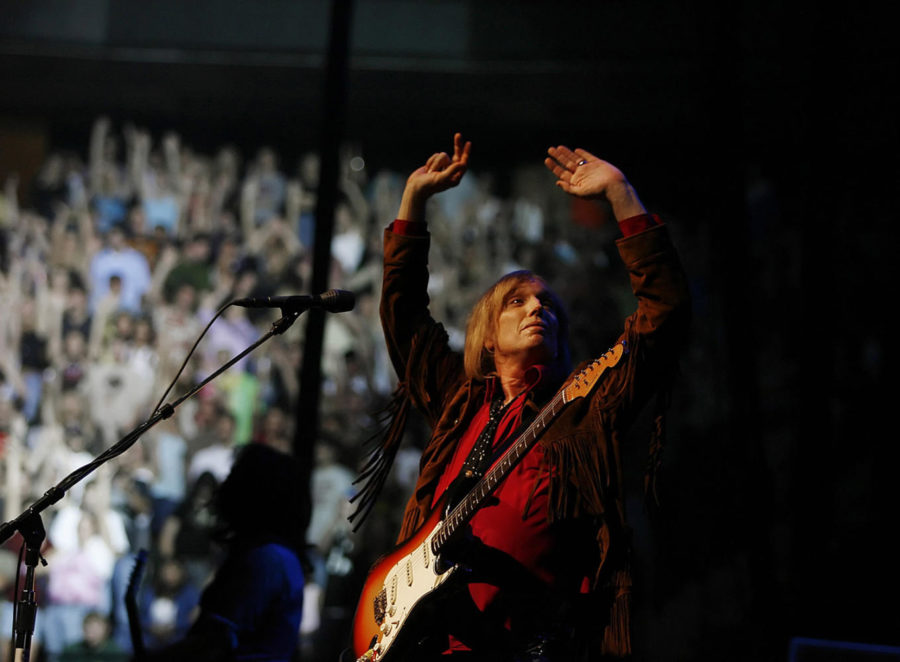“I’m just trying to make good quality music, ’cause I do realize this music is going to be around much longer than me. I do know that now,” Tom Petty said.
The ample songwriter and classic rock trailblazer Petty died of cardiac arrest at age 66 Monday, Oct. 2. What hurts the most when true music icons die is the silence that follows — there’s no 21 guitar salute, no last dance with Mary Jane. Petty’s last strum came quietly and unexpectedly.
“The Great American Songbook” lost a writer whose lyrics screamed pure Americana and made everyday life seem like the most fascinating topic on the planet.
I was on a bus when the news broke. Despite my low cell connection, I checked Twitter for about the umpteenth time that day and my eyes immediately shot to a tweet from director and journalist Cameron Crowe, “no words. just thanks. @tompetty.”
At that moment, I felt the urge to get off the bus. I’m not sure why I responded that way. Maybe I thought getting off the bus back into the fresh Oakland air would change the news. But of course it didn’t.
Petty got me out of a tight situation one time — it was the middle of my first year of high school and I was unbelievably late for Algebra class. My teacher had a strict attendance policy and coming in even milliseconds late could mean the end of Darren.
As I briskly leapt up the steps to the sixth floor, I listened to classic rock radio on Spotify and the music shuffled to Petty. When I finally made it to class, the teacher gave me a menacing glare and asked where I had been, noticing the earbud hanging from my left ear. The only explanation I had was I was listening to Petty’s “I Won’t Back Down.”
I was excused for being late that day because my algebra teacher’s all time favorite artist was Tom Petty. Thanks, Tom — for saving me.
And for the past 48 hours, I’ve spent most of my brainpower recalling the Petty lyrics that speak the most to me, which means I’ve been thinking about every track from 16 albums worth of uncontrived rock narratives.
Rock fans will never again hear live performances of “Don’t Do Me Like That” or his song about every triumphant underdog, “Even the Losers.”
I still shake my head at newscasts that show only Petty’s last performance, which occurred a week before his death. How could such an invincible sound suddenly be muted?
As soon as I got home, I placed my sole Petty record on a glistening turntable. “Damn the Torpedoes” features some of Petty’s most potent writing and divine Rickenbacker solos that feel like they last until the break of day even when the music stops.
For a moment, reports on social media contested that Petty was still alive, “clinging to life.” The waiting was naturally “the hardest part” as millions across the country checked Twitter every hour for updates on Petty’s condition.
As it got late and the needle of my turntable reached the last groove of the final track — “Louisiana Rain” — I decided to keep the record on for the night.
Maybe I thought I could stop the silence that follows after, or maybe I thought I could curb the tears of millions, falling down thicker than that Louisiana rain.


